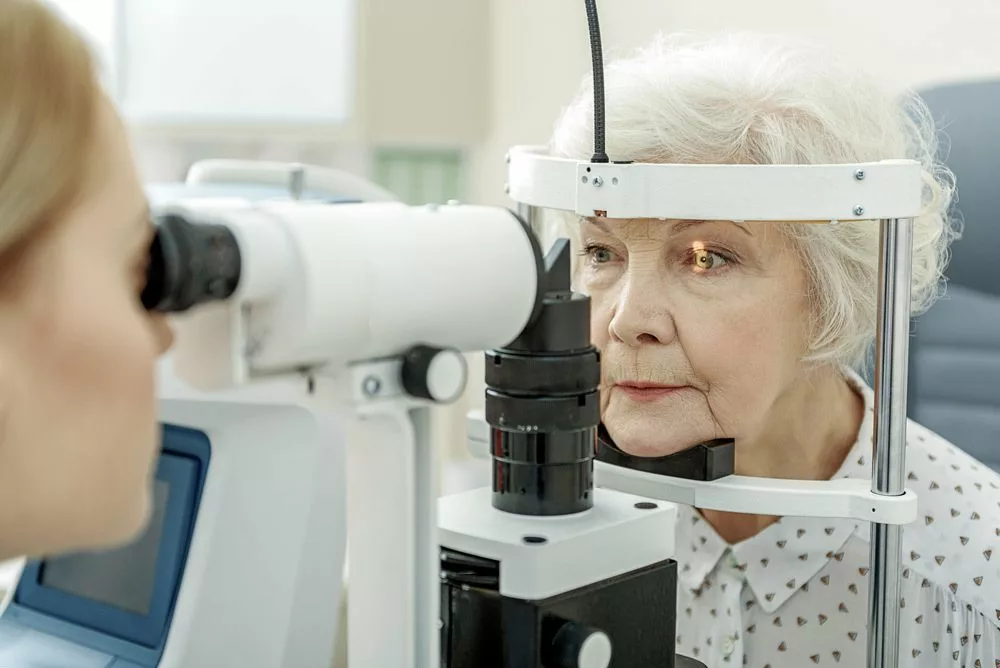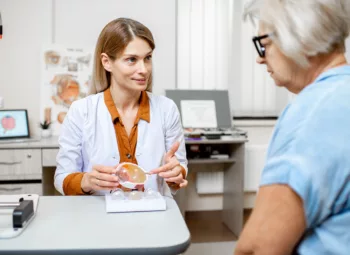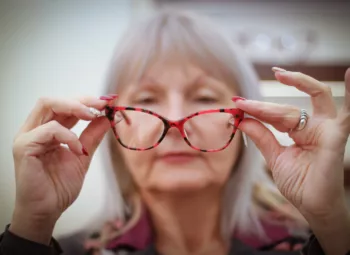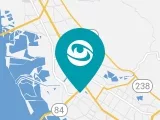
Your Complete Guide to a Truly Comprehensive Eye Exam
Some of the most common degenerative eye diseases such as cataracts don’t always present with symptoms right away. In fact, patients can have cataracts for years without noticing any changes in their vision. This is why having a comprehensive eye exam every one to three years is essential to the longevity of your vision and eye health.
Adults over 40 are at higher risk for age-related eye disease, therefore should schedule comprehensive exams rather than routine eye exams.
Comprehensive Eye Exam vs Routine Eye Exam
In a routine eye exam, an optometrist primarily tests a patient’s eyes for vision problems and identifies and measures refractive errors such as myopia (short-sightedness), hyperopia (far-sightedness), astigmatism, and presbyopia. The optometrist can then provide the patient with a prescription for glasses or contacts. This type of exam, conducted by an optometrist or ophthalmologist, which should be scheduled at least annually, typically takes about 20 minutes.
This type of eye screening will detect more common eye health issues, but the optometrist will refer the patient to an ophthalmologist for a comprehensive eye exam, which takes a bit longer if they find issues other than refractive errors or vision health problems that require more extensive treatment.
A comprehensive eye exam is also recommended for people experiencing any of the following symptoms:
- Decreased vision, even if temporary
- New floaters (black “strings” or specks in the vision)
- Flashes of light
- Curtain or veil blocking vision
- Haloes (colored circles around lights)
- Significant eye injury or eye pain
- Bulging of one or both eyes
- Crossed eyes
- Double vision
- Loss of peripheral vision
- Diabetes mellitus
- Thyroid disease-related eye problems (Graves’ disease)
- Family history of eye disease
In the comprehensive eye exam, an ophthalmologist conducts more advanced visual acuity testing, evaluates the overall health of the eyes, checks for a wide range of eye health issues, and outlines any necessary treatment plans.
What to Expect in a Comprehensive Eye Exam
How long does a Comprehensive eye exam last? Getting the overall health of your eyes investigated only takes an hour. For those wondering what is involved in a comprehensive eye exam, the following phases of the exam are outlined below.
Patient and Family Health History Intake
Every comprehensive eye exam begins with questions regarding the patient’s eyes, general health, family eye health history, and specific visual demands with regard to occupation and leisure activities. They will also require a list of prescribed medications.
Building this intake helps the doctor to better identify and address issues that may be affecting the patient’s vision, or that could lead to vision issues.
Visual Acuity Testing
The testing begins with those designed to evaluate visual acuity. Refractive errors are common eye conditions that cause blurred vision and other vision impairments to varying degrees. These errors are found through a variety of methods, beginning with an eye chart, and moving on to more sophisticated methods.
After the eye chart, the ophthalmologist uses an auto-refractor to introduce various lenses while the patient looks again at the eye chart. The results of this interactive test are fed into an auto-phoropter, which determines the final prescription for glasses or contacts.
Other Aspects of Vision Testing
In addition to determining refractive errors, tests are performed to check for problems with depth perception, field of vision, peripheral vision, color vision, and pupil response.
Eye Alignment, Movement, and Coordination Testing
A patient’s eyes will also be tested for alignment, movement, and how well they “team” or track together. These tests include the patient focusing on a particular object, while the doctor takes measurements, and the patient following their finger or other objects with their eyes, without turning their head.
Eye Health Exam
During this phase of the comprehensive eye exam, more sophisticated equipment is employed to check the patient’s overall eye health. Using a slit-lamp biomicroscope and an indirect ophthalmoscope, the doctor looks for eyelid inflammation, conjunctivitis, dry eye, corneal infections/ulcers, inflammation, cataract, etc.
If the patient would like to use contact lenses for the first time, additional testing for contacts will be done at this time.
Fluid Pressure Testing
A critical test only included in a comprehensive eye exam is the fluid pressure test, which is conducted to screen for glaucoma. Glaucoma damages the optic nerve via intraocular pressure.
If the doctor detects any sign of glaucoma, a follow-up appointment for a more thorough investigation with advanced tests will be scheduled.
Advanced Screening Under Dilation
After dilating the pupils with special eye drops, the doctor will conduct a detailed examination of the optic nerve, blood vessels, retina, and macula.
Doctor’s Review and Recommendations
At the completion of the exam, the doctor provides a glasses or contacts prescription as appropriate, as well as an explanation of other findings and their significance. If other issues have been found, the doctor will cover treatment options, suggest a treatment plan, and future routine or follow-up appointment frequency.
The doctor will also answer any eye health questions throughout the exam, and regarding diagnosis and treatments.
Schedule a Comprehensive Eye Exam at NeoVision Eye Center Today
A comprehensive eye exam will catch signs of age-related or other eye diseases, sometimes before symptoms manifest, often making treatment more effective. The thoroughness of a comprehensive eye exam can also provide peace of mind, and the assurance that a professional is tracking your vision, and supporting your overall health.
Union City Area Residents, Make an Appointment Today!
If you are looking for a comprehensive, compassionate eye care exam in the Union City area, give NeoVision a call at 510-431-5511, or fill out the form below!
"*" indicates required fields





